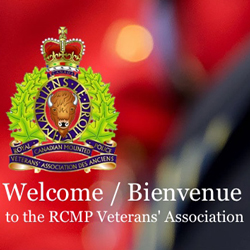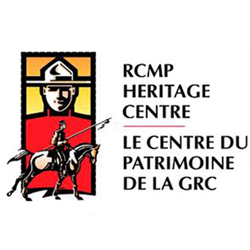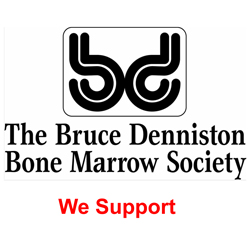Cst. Geoffrey Curtis
“We love you son. You are forever a huge part of our lives”
For Chris Curtis, it happened just like it does in the movies. The doorbell rang and a solemn police officer delivered the worst news imaginable. She told Chris that his 36-year-old son, Geoffrey, was dead. Then she told him that he’d killed himself. “Geoff and I talked or texted almost every day. If he had emotional issues, I never knew about them,” Chris said. “For me, his decision to kill himself came completely out of the blue. My family, no one we know, none of us had any inkling. Geoff didn’t talk about emotional issues, even when he was young. That was fine by me, it was just who he was. His suicide came as a devastating shock.”
Geoff Curtis loved travel and adventure. He’d visited many parts of North America, England, Scotland, Barbados and Southern Africa. He experienced the magic of Zambia’s wild life, he bungee jumped off the Victoria Falls Railway Bridge in Zimbabwe and swam with great white sharks off the coast of South Africa.
After high school, Geoff earned his private pilot’s license, but dreamt of a career that would ultimately allow him to combine his love of travel with work that required a deep personal commitment. The RCMP seemed like a good fit.
Geoff became a regular member in May 2018. “It was the proudest day of his life,” said Chris. “He was thirty-four years old and already had plenty of life experience under his belt. The RCMP lined up with what he wanted to be. He liked living a bit on the edge, but he also wanted to do something he felt was worthwhile. I was so very proud of him.”
Geoff requested the Northwest Territories as his first posting “He’d worked at a gold mining site in Nunavut in the middle of winter, so I think he felt he knew what the north would be like,” said Chris.
After six months in Yellowknife, Geoff moved to Behchoko, a small Indigenous community 100 kilometers further north. As an RCMP Constable, Geoff knew he had to be completely fair to those he served and loyal to his colleagues. “He was proud to be a member of the RCMP and by all accounts, he fully lived up to his core values,” said Chris. “He had a sense of integrity that I’m proud of.”
Although Geoff didn’t share the details of his work with his father, Chris thinks he found life in Behchoko more stressful than he’d anticipated.
“The inter-dynamics of a small group of officers living in an isolated post can be intense. Always together, always having to depend on each other. There’s good and bad,” said Chris. “Geoff was single, so he didn’t have much of a social life in Behchoko. Emotionally, he kept to himself, but he considered some of the people he worked with good friends.”
Up until the moment he decided to take his own life, Geoff was planning for the future. “He was relocating to Yellowknife, in fact the movers were scheduled to arrive the next day,” said Chris. “He and I were talking about getting together in Edmonton and later visiting Africa together.”
Chris thinks that police culture still makes it difficult for front-line officers to be open about their emotional needs. “There seems to be a contrast between the concept of command and control, depending on your troop mates, versus being open about any problems you might have. There’s a contradiction between those cultural objectives. Police officers are expected to be forceful when necessary and always unemotional in crises, so how can they be comfortable expressing their emotions? It would undermine your partner’s confidence in relying on you. How do you train someone to be impersonal, and in some cases domineering, yet at the same time be open and forthcoming about their problems?”
“Changing the RCMP’s culture should start at Depot,” said Chris. “If you want members who are sensitive enough to their own needs to seek counselling, they should be learning from the start that it’s okay to ask for help.”
The devastating shock of a child’s suicide weighs heavily on parents. “You go through the normal processes and thoughts,” said Chris. “I honestly can’t point to anything specific. Geoff never drank, he never took drugs. Why did he do it? Could I have stopped it? What didn’t I do as a parent? All of that stuff comes up. It’s been four months now and I feel no anger. My decision early on was to respect his choice. I don’t agree with it and I desperately wish he hadn’t done it, but I think that, for him, at that time, he felt it was the only way to deal with whatever problems he was having. Geoff was the only person who knows what he was dealing with. It’s a mystery to me and, as far as I know, to everyone who knew him.”
“The greatest joy and privilege in my life has been being a father. My grief is an overwhelming jumble of everything. The effect this has had on Geoff’s mother, his brother, my wife, his co-workers… it’s huge. The people he enjoyed working with, they must be finding it tough. I think that police officers in today’s anti-police environment are vulnerable to taking things very personally.”
Since Geoff’s death, Chris said the RCMP has helped him substantially. “They’ve been enormously helpful. They’ve spoken to me and Geoff’s mother almost every day, they helped his mother arrange the funeral, helped me with legal documents and processes, helped me deal with Geoff’s possessions. I’m administering his estate so it takes a huge load off my mind.”
When asked if he had any advice for others dealing with suicide, Chris said, “Just let the emotions happen. It’s a tough journey, really hard. The loss is huge. It may eventually lead to better things, I don’t know. As quickly as you can, I think you have to try to return to regular activities. My friends and family have been great about that. My brothers and friends call regularly. I play golf two or three times each week and if we’re not golfing, my wife and I go for long walks. I do my Italian lessons on the Internet. I read. I have a good counsellor. You’ve got to try to get back to normal. I have no hesitancy in talking about this with anyone. For me, there’s no stigma attached to any of it. At the same time, I’m aware that my friends and family won’t talk about it forever, I can’t expect that of them. They’re especially open to encouraging me to do stuff that helps me get back to a more normal life. The pain remains. We’ll never solve suicide, but hopefully we can reduce the numbers.”
Should you wish to leave a comment or reach out, please e-mail ODiv_Peer_to_Peer_System-ODiv_Systeme_de_soutien_par_les_pairs@rcmp-grc.gc.ca.

Need help now?
If you are in crisis or having suicidal thoughts, take action:
- Call 9-1-1
- Go to the nearest hospital emergency department
- Contact Employee Assistance Services at 1-800-268-7708
- Contact Crisis Services Canada at 1-833-456-4566
|




 December 1, 2020
December 1, 2020 







